 The 2018 Systems Thinking Symposium focuses on the application of systems thinking to a wide array of critical challenges facing national and statewide policy makers and water professionals. It highlights critical issues related to water, presenting the USDA-funded ThinkWater initiative as a model for addressing issues vital to our national interest. ThinkWater organizes programs to enhance education, research, and outreach in the water realm, broadly defined. It does so through the application of accessible and efficient methods of teaching systems thinking. This year’s symposium will focus on ThinkWater’s Wisconsin initiatives and national fellowship that focuses principally on program development, and delivery, while summarizing the outcomes of previous studies in the areas of secondary education and high-level research. The ThinkWater example will be used to frame discussions of the possibilities and promise of more accessible ways of learning and applying systems thinking to the full array of complex problems we face.
The 2018 Systems Thinking Symposium focuses on the application of systems thinking to a wide array of critical challenges facing national and statewide policy makers and water professionals. It highlights critical issues related to water, presenting the USDA-funded ThinkWater initiative as a model for addressing issues vital to our national interest. ThinkWater organizes programs to enhance education, research, and outreach in the water realm, broadly defined. It does so through the application of accessible and efficient methods of teaching systems thinking. This year’s symposium will focus on ThinkWater’s Wisconsin initiatives and national fellowship that focuses principally on program development, and delivery, while summarizing the outcomes of previous studies in the areas of secondary education and high-level research. The ThinkWater example will be used to frame discussions of the possibilities and promise of more accessible ways of learning and applying systems thinking to the full array of complex problems we face.
Keynote Speakers
Few issues are as important to the well-being of our nation and planet as water. We increasingly face short- and longer-term crises due to a host of complex factors involving climate, ecology, and human use patterns. The keynote speakers address the complexities of wicked problems through systems thinking using water as an example.
(Click on a speaker to reveal their bio)

Fishman, an author and investigative reporter, has in the last four years become one of the most forceful, challenging, and inspiring public voices on water issues, speaking everywhere from MIT and UCLA, to the Hershey Company and The Hague. Fishman’s book, The Big Thirst: The Secret Life and Turbulent Future of Water, has become the best-selling water book in a generation, and is changing both how people think about and how they manage water. The Big Thirst does something few water books do—it restores a sense of wonder about water, while imparting a sense of urgency and of optimism.
Fishman is a former reporter for the Washington Post, and was a reporter and editor at the Orlando Sentinel and the News and Observer in Raleigh, NC. Since 1996, he has worked for the innovative business magazine Fast Company. Fishman’s work has won numerous awards, including three times receiving UCLA’s Gerald Loeb Award, the most prestigious award in business journalism.
Fishman is the author of two other New York Times bestsellers. The Wal-Mart Effect chronicles Wal-Mart’s impact on how we live, and the recent #1 NYT bestseller A Curious Mind (with Brian Grazer) explains the power of curiosity. Fishman grew up in Miami, Florida, and graduated from Harvard. He lives in Washington, DC, with his wife (also a journalist), two teenagers, and two labradors. He happily drinks Washington, DC, tap water, with ice.

Derek Cabrera (PhD, Cornell) is an internationally known systems scientist who in 2021 was inducted as a Member of the International Academy for Systems and Cybernetic Sciences (IASCYS) for outstanding contributions to the field. Derek serves on the faculty of Cornell University, is Faculty Director for the Graduate Certification Program in Systems Thinking, Modeling, and Leadership (STML) and is senior scientist at Cabrera Research Lab. He serves on the United States Military Academy at West Point’s Systems Engineering Advisory Board. He has given two TED Talks, holds two US patents, written and produced a rap song, a children’s book on cognition, and numerous book chapters and peer-reviewed journal articles. His research has been profiled in peer-reviewed journals, trade magazines, and popular publications. His work in public schools was documented in the full-length documentary film, RE:Thinking. He was Research Fellow at the Santa Fe Institute (SFI) for the Study of Complex Systems and National Science Foundation IGERT Fellow in Nonlinear Systems in the Department of Theoretical and Applied Mechanics at Cornell University. In 2018, he received the National Science Foundation Small Business Innovation Research (SBIR) for his work in cognitive mapping. He is author of ten books including, The Origin of Ideas: Empirical Studies in Cognitive Complexity (forthcoming 2022), Systems Thinking Made Simple (winner of the 2017 AECT outstanding book award), Thinking at Every Desk, and Flock Not Clock. He is credited with discovering universal organizing rules of systems and systems thinking (DSRP Theory) and organizations (VMCL Theory). He was invited by LinkedIn Learning and eCornell to deliver online courses in Systems Thinking and Leadership. He was Co-Founder and Chief Science Officer of Plectica (since sold to Frameable) where he invented several software applications including Plectica systems mapping and virtual whiteboard. Cabrera is co-editor of the Routledge Handbook of Systems Thinking (forthcoming 2022) and on the editorial board of the international, peer-reviewed journal, Systems. He is the Editor in Chief of the peer-reviewed Journal of Systems Thinking. As a National Science Foundation postdoctoral fellow, he developed new techniques to model systems approaches in the evaluation of Science, Technology, Engineering, and Mathematics (STEM). Cabrera was awarded the Association of American Colleges and Universities’ K. Patricia Cross Future Educational Leaders Award. His contributions to the field of systems thinking have been integrated into NSF, NIH, and USDA-NIFA programs, K-12, higher education, NGOs, federal agencies, corporations, and business schools. His systems models are used by many of Silicon Valley’s most innovative companies. His books are used as introductory text for undergraduate and graduate students in numerous colleges and universities including Cornell University, the US Military Academy at West Point, and the US Army War College. Cabrera has developed a suite of systems thinking tools for use in academia, business, and beyond including the first validated personal inventory of systems thinking. Prior to becoming a scientist, Cabrera worked for fifteen years around the world as a mountain guide and experiential educator for Outward Bound and other organizations and has climbed many of the world’s highest mountains. He also worked extensively with the Conservation Corps and Restorative Justice movements. He holds a PhD from Cornell University and lives in Ithaca, NY, with his wife, Laura Cabrera, three children, and two dogs.
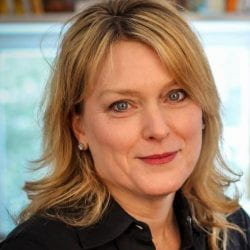
Laura Cabrera (B.S., M.P.A, & PhD, Cornell) currently teaches Systems Thinking and Modeling and Systems Leadership at Cornell University at the Institute for Policy Affairs. She is also Program Director for Cornell’s Graduate Certification Program in Systems Thinking, Modeling, and Leadership (STML). Cabrera serves as faculty for the SC Johnson College of Business, where she delivers Executive Education Programs to executive teams in both systems thinking and systems leadership.She is co-founder, and chief research officer at Cabrera Research Lab. She was Co-Founder and Chief Research Officer of Plectica (now Frameable). Over the past decade, Laura has applied her expertise in research methods and translational research to increase public understanding, practical application, and dissemination of sophisticated systems science and systems thinking models. She was also invited by eCornell to deliver the online certificate course in Systems Thinking and Leadership, as well as the eCornell courses that are part of the Executive MPA Program. She was the acting Executive Director of ThinkWater, a USDA-funded initiative designed to implement systems thinking nationwide in water-based research, extension, and education. In 2018, she received the National Science Foundation Small Business Innovation Research (SBIR) for her work in cognitive mapping. She has more than twenty-five years of research and teaching experience at Cornell University, which includes: teaching coursework on families and social policy in Cornell’s Department of Human Development; Senior Research Associate at the Center for Translational Research; Principal Evaluator for the Eat Smart New York Program for the NYS Food Stamp and Nutrition Education Program; Project Director for the National Science Foundation Science, Technology, Engineering and Mathematics (STEM) Systems Evaluation Capacity Grant to evaluate STEM Education nationwide and to develop a systems thinking approach to STEM education; and Co-Principal Investigator for Cornell’s Parenting in Context Initiative. Prior to Cornell, Cabrera conducted research at the National Academy of Sciences Institute of Medicine, the U.S. Department of Health and Human Services, and the U.S. Department of Justice. She has authored five books including Systems Thinking Made Simple: New Hope for Solving Wicked Problems and Thinking at Every Desk: Four Simple Skills to Transform Your Classroom (Norton), Flock Not Clock: Design, Align, and Lead to Achieve Your Vision, and is currently co-editor of the Routledge Handbook of Systems Thinking. Her work in public schools was documented in the full-length documentary film, RE:Thinking. Dr. Cabrera holds a PhD in Policy Analysis and Management and a Master’s in Public Administration, and a bachelor’s degree, all from Cornell University. She is a member of the United States Military Academy at West Point’s Systems Engineering Advisory Board. She specializes in translating cutting-edge research from the learning sciences for broad application–whether in corporations, schools, nonprofits, government agencies, or for parents interested in the psychosocial development of their children. She lives in Ithaca, NY, with her husband, Derek Cabrera, three children, and two dogs.
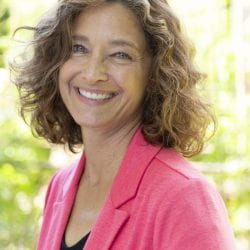
Dr. Jennifer Kushner is the Director for CALS Global at the University of Wisconsin-Madison where she provides leadership for international research and outreach activities in agriculture and the life sciences. Dr. Kushner has led and evaluated US-based and global initiatives in agriculture, health, environment, and community development- with focused work in water. She specializes in systems approaches to complex issues with an emphasis in systems evaluation. She holds a B.S. and M.S. from the University of Wisconsin-Madison, and an EdD from National-Louis University.
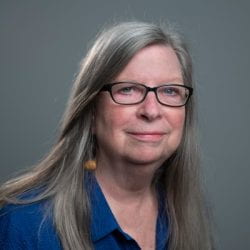
Hoard is President of the award-winning film company PhotoSynthesis Productions, based in downtown Ithaca, New York. Her work is focused on education and social justice, and she has won more than 150 national and international film and video awards.
Hoard’s documentary They Call It Myanmar screened worldwide and was called “a thing of beauty…one of the top 12 documentaries of 2012” by Roger Ebert. Her narrative film Civil Warriors was recently awarded Best Feature at the Long Beach INDIE Film Festival, and her new documentary about Cambodia entitled Angkor Awakens opened in theaters nationwide in 2017. Hoard has produced numerous short films and animations for the ThinkWater national education program. Her new documentary RE:THINKING explores the power of systems thinking in education.
A member of the President's Council of Cornell Women, Hoard graduated from the University of California, Berkeley, and has a master’s degree from Cornell.
The 2017 ThinkWater Fellows
The annual ThinkWater fellowships build a cohort of scholars and professionals engaged with water-related issues and teaches them systems thinking for application to their ongoing professional work. The 2017 fellows work in positions that allow them to integrate systems thinking into program design, education, and outreach involving a broad range of audiences, such as farmers, community members, volunteers, and youth. Their presentations will focus on the impact that systems thinking has had on their water-related programming and research.
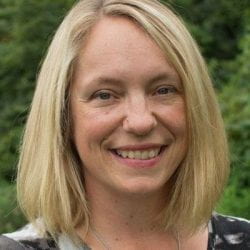
I am an aquatic ecologist and outreach specialist at Michigan State University, in the Department of Fisheries and Wildlife. I work collaboratively with natural resource managers, communities, and the public to develop innovative solutions to the complex challenges facing aquatic systems. My work includes guiding Michigan’s statewide volunteer lake and stream monitoring program and developing creative approaches to prevent the introduction and spread of aquatic invasive species. I’ve taught university courses on aquatic ecosystem management, science communication, and aquatic entomology, and teach Extension programs about aquatic plants, lake ecology, water quality monitoring, invasive species, and natural resources leadership.
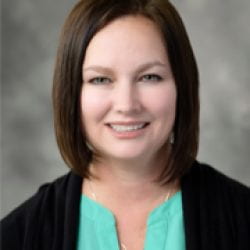
Kara Salazar is Assistant Program Leader and Extension Specialist for Sustainable Communities, affiliated with Illinois-Indiana Sea Grant, Purdue University Extension, and the Purdue University Department of Forestry and Natural Resources. Working with multidisciplinary teams, Kara oversees the development and delivery of programs to support community planning and sustainable development strategies in communities across Indiana and Great Lakes states. Extension program focus areas include placemaking and enhancing public spaces, land use, green infrastructure, community development, facilitation and strategic planning. Kara additionally serves as a liaison between Illinois – Indiana Sea Grant and Purdue Extension. In this administrative role, she facilitates and coordinates collaborative activities between Illinois-Indiana Sea Grant and the Purdue Extension program areas of Community Development and Agriculture and Natural Resources.
Kara has a B.S. in public affairs and environmental science and a M.P.A. in natural resources management and nonprofit management from the Indiana University School of Public and Environmental Affairs. She also received a M.S.Ed. degree from the IU School of Education at Indiana University-Purdue University Indianapolis (IUPUI) with concentrations in community building and science education. Additionally, she is pursuing a PhD part-time in Natural Resources Social Science at Purdue University. Kara is a certified planner (AICP) and a Professional Community and Economic Developer with credentials from LEED AP ND and the National Charrette Institute. Kara serves on the Indiana Land Resources Council, the Community Planning and Zoning Extension Community of Practice, and the Purdue Land Use Team.
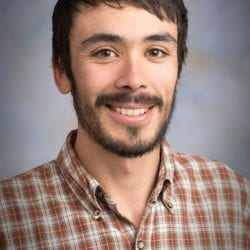
Blake Osborn provides leadership in the area of water resources throughout southern Colorado and collaborates with researchers and water users to solve water quality and quantity issues in the Arkansas and Rio Grande River Basins. Most of his research is focused on subsurface hydrologic processes including hydrochemical transport, unsaturated water movement, stream restoration, geospatial data applications, post-wildfire mitigation, and how land use changes affect hydrologic processes. He is interested in hydrologic processes at many spatial scales and most of his work includes a mix of wildland hydrology in both natural and developed systems.
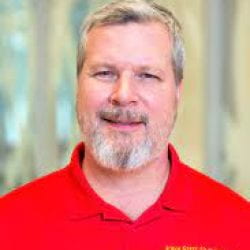
My research and extension efforts focus on improving the environmental and social performance of agricultural systems. My main area of interest is drivers of farmer and agricultural stakeholder decision making and action related to soil and water quality and adaptation to climate change. I direct the Iowa Farm and Rural Life Poll, an annual survey of Iowa farmers.
- ResearchGate: Full texts of many of my articles and reports can be found on my ResearchGate page.
- ISU Digital Respository: Full texts of some of my articles and reports can also be found on my Digital Repository page.
- Google Scholar: And here is my Google Scholar page.
Please visit my website.
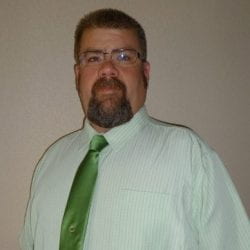
Three years of classroom teaching experience and substitute teaching. Working on my 29th year of environmental science that includes watershed assessment and planning, teaching leadership academies, stormwater permitting, TMDL experience and outdoor education. Additional experience with webpage development and maintenance.
Wisconsin ThinkWater School
Wisconsin ThinkWater School was designed to capitalize on both increased interest and urgency around water issues and advances in systems thinking to enhance community water education and outreach in the state. ThinkWater School accomplished this by integrating systems thinking into program development and delivery. Six teams comprised of a total of 19 professionals participated in ThinkWater School. The Teams used systems thinking to build shared understanding of their issue, design education programs, and to develop unique approaches to address community issues. ThinkWater School Teams will present highlights of their applications of systems thinking and its impact on their community engagement work.
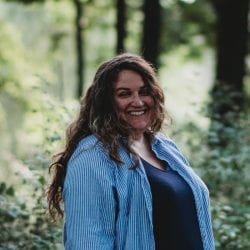
My broad research interests and expertise pertain to understanding and modeling the impact of social factors – from the individual to the community level – on natural resources planning, management, conservation, and restoration across public and private lands. Most of my research is in the context of forest and water resources.
I am currently involved in several projects related to family forest owners: policy tool preferences for engaging in management activities on their land; invasive species monitoring, prevention, and control practices; and the impact of public lands restoration activities on landowner willingness to participate in landscape restoration. I am also leading a team of scientists in conducting a meta-analysis of the family forest owner literature to develop a more comprehensive understanding of what impacts landowner decisions and behaviors.
I have a keen interest in water and the social aspects of preventing pollution from nonpoint sources, and participate in a number of projects to that end. One such project is a multistate team investigating catalysts for collective action to protect water resources. This work has led to a number of collaborative investigations that capitalize on the knowledge of scientists across the Midwest, including the analysis of large survey data sets from across the Great Lakes region. An additional project I am working on involves analyzing water governance structures that span spatial, social, administrative, and institutional levels.
Stakeholder perceptions and support of management actions and restoration on public lands is another focus of my work. I was a co-PI on a recent survey of residents in the Wisconsin Northwoods to understand what impacted their attitudes toward management on three types of public forest in the state. With other Forest Service scientists and cooperators from the University of Wisconsin – Stevens Point, I am investigating perceptions of a large scale landscape restoration project on the Chequamegon Nicolet National Forest.
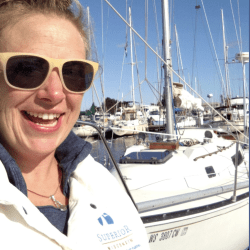
Water Resources Program Coordinator for the city of Superior, DeVera has a deep connection with water that stems from living on the shores of Lake Superior. Hired by the City of Superior in 2006, she started her career managing sanitary and storm sewer databases, surveying, and inspecting infrastructure. In 2008, her focus became exclusively stormwater as she helped develop the city’s Stormwater Utility, Utility Credit Program, and Long-Term Stormwater Management Program.
In 2014, DeVera took a job working for AMI Consulting Engineers focused on site design for stormwater management, project permitting, and industrial stormwater permit compliance. The broader perspective she gained working for AMI led to a deeper understanding of stormwater management, which she employs in her current role as Water Resources Program Coordinator in Superior.
DeVera has a bachelor’s degree in Biomedical Engineering from Michigan Tech, earned a Certificate in Water Technology from UW-Milwaukee in 2012, participated in the 2017 ThinkWater School, and currently holds certifications in Wisconsin as a Soil Erosion Inspector and in Minnesota for Construction Site Management, Construction Site Stormwater Pollution Prevention Plan Design, and Best Management Practice Maintenance.
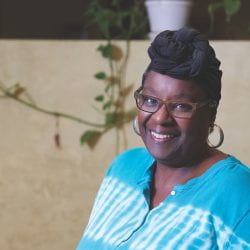
Coley is Co-Executive Director of the Milwaukee Water Commons. Her long history of service in the non-profit and academic sectors includes roles such as non-profit director, research coordinator, and project manager. As sole proprietor of Brenda Coley & Associates, she provided technical assistance in the areas of project management, organizational and leadership development, and cultural competency and diversity to a range of clients, including the Salvation Army, National Institute on Mental Health, and the Women of Color Network.
Coley has served on many community engagement boards and public health initiatives including the Wisconsin Minority Health Leadership Council and the Wisconsin HIV Prevention Council. She brings a unique emphasis on servant leadership and community engagement to her work for the Milwaukee Water Commons.
Her philosophy emphasizes exploring the influence of one’s own culture(s) in addressing common problems, understanding the treatment of different societal groups, and using that knowledge to develop strategies to effectively engage diverse groups of people in important community issues.
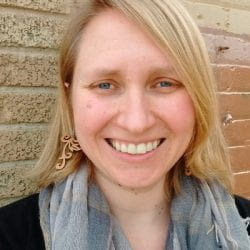
Kirsten Shead is the Co-Executive Director of Milwaukee Water Commons. She has an unwavering commitment to social justice, environmental stewardship and the Milwaukee community at large.
Shead has worked with MWC in varying capacities since 2014: as a community partner, serving on the Advisory Team, as a Community Organizer focused on lead in drinking water and access to blue-green jobs, and as Water City Program Manager.
Shead has a BS in chemistry and broad experience working in education, industry and environmental labs. She left the corporate world in 2009 for the nonprofit sector. From 2013-2017 she served as program director for the Interfaith Earth Network, utilizing her passion for interfaith understanding, collaboration, and dialogue. She joined the MWC team full-time in 2018.
Shead strives for a simple life, emphasizing relationships, community, justice, nonviolence, and peacemaking. She loves exploring the natural world—scuba diving, kayaking, camping, and other wilderness adventures.
Recordings of Presentations
Charles Fishman
Dr. Derek Cabrera
Drs. Laura Cabrera and Jennifer Kushner
Deborah Hoard
Jo Latimore
Kara Salazar
Blake Osborn
Dr. J. Arbuckle
Jim Collins
Kristin Floress
Kristy DeVera
Brenda Coley and Kirsten Shead
